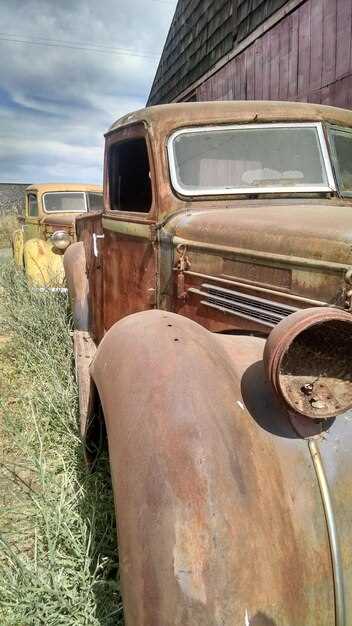
The 1970s marked a distinctive era in automotive history, particularly with the rise of station wagons. These versatile cars became the quintessential family vehicle, blending functionality and style in a way that appealed to a broad audience. With spacious interiors and ample cargo space, they were perfect for family road trips, weekend getaways, and everyday errands.
As families sought practicality without sacrificing aesthetics, 70s station wagons emerged as a popular choice. Their unique designs combined the elegance of classic automotive styling with the robust functionality required by active households. Many models from this decade still attract attention today, showcasing a blend of nostalgia and timeless appeal that resonates with both enthusiasts and new generations.
In this article, we will explore some of the most iconic station wagons from the 70s that continue to capture the hearts of car lovers and families alike. We’ll delve into the features that made these vehicles stand out, highlighting their enduring legacy and the charm that has kept them relevant in the automotive landscape.
Key Features That Define Iconic 70s Family Wagons

The 1970s was a transformative decade for family station wagons, as they became synonymous with practicality and comfort. These cars were designed to accommodate the needs of families while offering a touch of style and flair.
One of the standout features of 70s family wagons was their spacious interiors. With expansive seating arrangements, many models could comfortably transport seven or more passengers. This capacity made them ideal for family road trips, providing ample room for kids, pets, and luggage.
Another defining characteristic of these vehicles was their versatile storage options. Most wagons came equipped with a generous cargo area, often featuring a rear tailgate that provided easy access. Many models included fold-down rear seats, allowing owners to adapt their storage space based on varying needs, from groceries to sports equipment.
In terms of performance, 70s family cars were typically powered by V8 engines, delivering the necessary power to transport heavy loads while maintaining a smooth driving experience. This combination of strength and reliability made these wagons favorite choices among families seeking both performance and comfort.
Additionally, innovative safety features began to emerge during this era. Many wagons included seat belts, shatter-resistant windows, and reinforced structures, reflecting the growing awareness of passenger safety. These advancements provided families with greater peace of mind during their travels.
Lastly, the unique aesthetic design of 70s station wagons set them apart. With bold colors, wood paneling, and distinctive styling, these cars captured the spirit of the decade while remaining functional. Their eye-catching appearances made them not just family vehicles, but also status symbols among suburban households.
Why 70s Station Wagons Remain Popular Among Collectors

The 1970s were a golden era for station wagons, offering a unique blend of practicality and style that resonates with collectors today. These vehicles embody the essence of family transportation, making them nostalgic symbols of road trips and shared memories.
One key reason for their popularity among collectors is the iconic design of 70s station wagons. Many models displayed bold lines, vibrant colors, and distinctive silhouettes that set them apart from modern vehicles. This aesthetic appeal attracts enthusiasts who appreciate automotive artistry and retro charm.
Additionally, 70s station wagons often featured spacious interiors, accommodating families and making them perfect for long journeys. This utility factor ensures that these classic cars remain relevant, as many collectors seek vehicles with practical applications, not just showpieces.
The strong community surrounding vintage automobiles also plays a significant role in the ongoing fascination with 70s station wagons. Events, clubs, and online forums allow collectors to share their passion, swap stories, and showcase their meticulously restored vehicles, further enhancing their market value.
Lastly, the scarcity of certain models contributes to their desirability. As more examples of these classic station wagons have fallen into disrepair or are no longer on the road, collectors view them as rare finds, elevating their status in the collector market.
Practical Tips for Restoring and Maintaining Classic Wagons
Restoring a classic 70s station wagon is an exciting journey, especially for families who cherish the nostalgia of these iconic cars. To ensure your restoration project is successful and your wagon remains in excellent condition, consider these practical tips.
First, start with a thorough assessment of the vehicle. Inspect the body for rust, dents, and paint condition. Check the undercarriage for any signs of decay. Identifying issues early will help you prioritize repairs and budget accordingly.
Next, focus on the engine and mechanical systems. Classic wagons often have outdated components that may need replacement or refurbishment. Consider updating the fuel system, electrical wiring, and braking system to enhance safety and reliability. Regular maintenance of these systems will keep your car running smoothly for years.
When it comes to interior restoration, pay special attention to upholstery and dashboards. Original materials may be hard to find, so look for modern alternatives that match the vintage feel. Keeping the interior comfortable is vital for family road trips and adds to the charm of the classic car.
Don’t forget about the wheels and tires. Select tires that provide good traction and comfort, which is essential for family outings. Regularly check the tire pressure and alignment to ensure a safe driving experience.
Lastly, create a maintenance schedule. Regular check-ups, oil changes, and fluid replacements will prolong the life of your classic wagon. Document all work done to maintain its history, which could be valuable if you decide to sell in the future.
Restoring and maintaining a classic 70s station wagon requires dedication, but the rewards of driving a vintage family car are unparalleled. By following these practical tips, you can ensure that your wagon remains a standout gem on the road.












